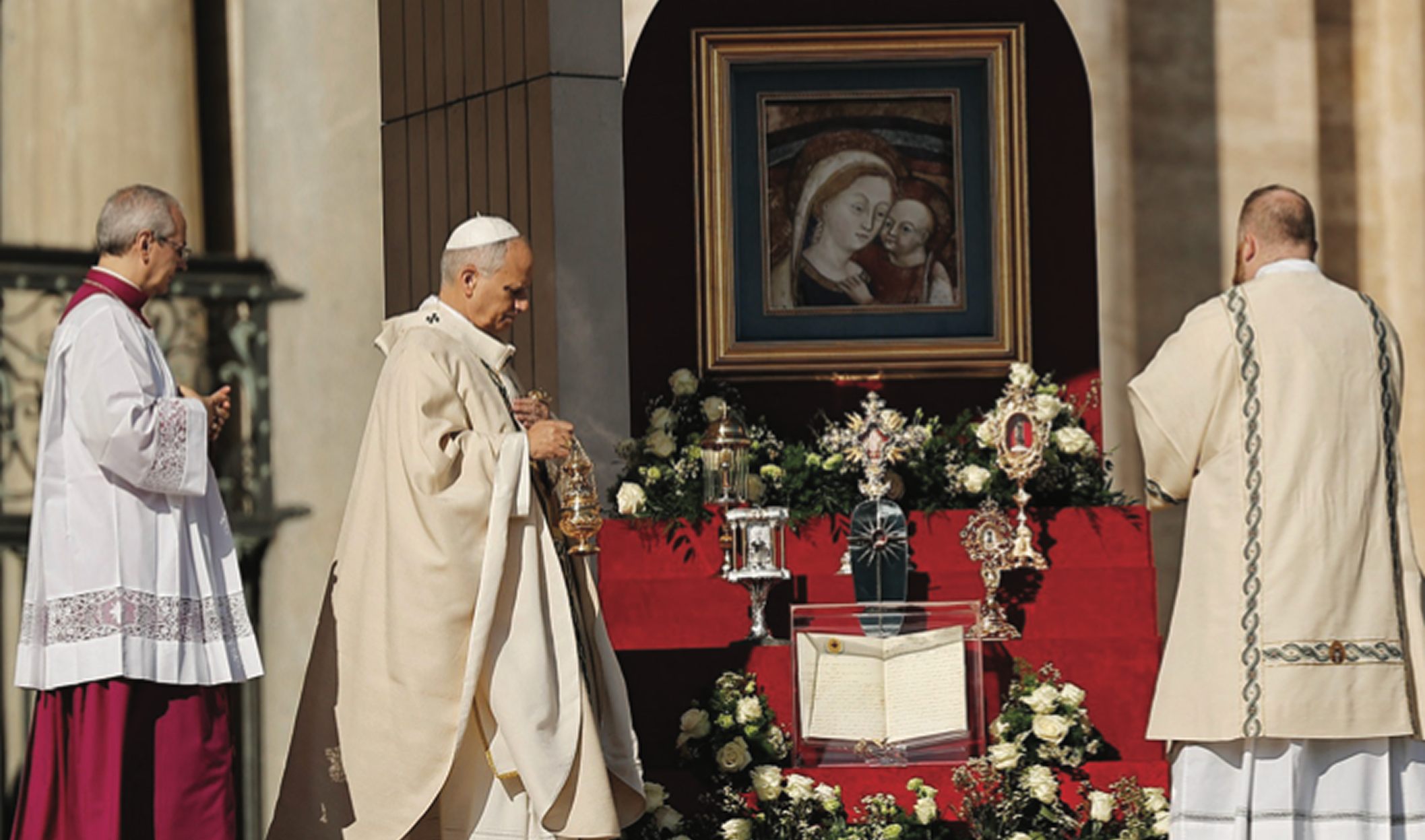THE VATICAN — A solemn canonization ceremony for Archbishop Ignatius Maloyan, a victim of the Armenian Genocide, and six other Blessed took place at St. Peter’s Square in the Vatican, presided over by His Holiness Pope Leo XIV. The ceremony was attended by Armenian Prime Minister Nikol Pashinyan, Lebanese President Joseph Aoun, and Italian President Sergio Mattarella. During the ceremony, His Holiness Pope Leo XIV welcomed the distinguished guests and a special Armenian prayer was offered in honor of Archbishop Ignatius Maloyan. The Pope extended his words and blessings to all those present. In his homily, the Holy Father reflected on Jesus’ question about whether the Son of Man would find faith on earth upon His return. He emphasized that faith is the precious bond of love between God and His people. “Today we have before us seven witnesses—the new Saints—who, by God’s grace, kept the lamp of faith burning,” the Pope said. “Indeed, they themselves became lamps capable of spreading the light of Christ.” The Pontiff reminded the faithful that while the world’s material, cultural, scientific, and artistic treasures hold great value, they lose their true meaning without faith. A world without faith, he warned, would be filled with “children without a Father,” devoid of the desire for life and hope for salvation. For this reason, Jesus calls upon us to pray constantly so that our bond of love with God may endure and our hearts may receive His salvation. “Just as breathing sustains the life of the body, so prayer sustains the life of the soul,” the Pope explained. “Faith is expressed in prayer, and authentic prayer lives through faith.” Pope Leo XIV noted that Christians often face two temptations in prayer: despairing in the face of evil, believing that God is indifferent, or attempting to command God according to our own sense of justice. Jesus, he said, liberates us from both through His prayer on the Cross—“Thy will be done.” “When we wonder where God is in our suffering,” the Pope continued, “let us turn that doubt into prayer, knowing that God is present wherever people suffer. When we are ‘crucified’ by pain, hatred, or war, Christ is already there, on the cross for us and with us. There is no cry that God does not console; no tear that is far from His heart.” Concluding his homily, the Holy Father urged Christians to live faith in every aspect of life, as faith nourishes both our commitment to justice and our longing for divine love to heal the world. “Faith on earth,” he prayed, “sustains the hope for heaven.” Life and Martyrdom of Archbishop Ignatius Maloyan Ignatius (baptismal name: Shukrallah) Maloyan, the son of Melkon and Faride, was born in 1869 in the city of Mardin (then part of the Ottoman Empire). According to historical accounts, the local parish priest was the first to recognize a spiritual calling in the 14-year-old boy and sent him to the Monastery of Our Lady of Bzommar in Lebanon to study theology. After completing his higher education in 1896, he was ordained a priest and joined the Congregation of Bzommar, taking the name Ignatius in honor of Saint Ignatius of Antioch, a martyred saint. From 1897 to 1910, Father Ignatius served as a parish priest in Egypt. In 1911, during the Synod of Armenian Catholic Bishops held in Rome, he was elected Archbishop of Mardin. On April 30, 1915, Turkish soldiers surrounded the Armenian Catholic cathedral and episcopal residence in Mardin, accusing them of storing weapons. A month later, on June 3, Archbishop Maloyan and 27 prominent Armenian Catholics were arrested. The next day, other clergy and numerous believers were also detained. During his trial, the police chief, Mamduh Bey, demanded that the Archbishop convert to Islam. He steadfastly refused, declaring, “I am ready to endure any torture and even die—it will be a joy for me— for I am a follower of Christ.”Infuriated, Mamduh Bey struck him on the head with a pistol and ordered that he be imprisoned. he Archbishop was chained, beaten, and tortured; soldiers even tore out his toenails. It is recorded that on June 9, his mother visited him, and the next day, soldiers rounded up 447 Armenians from Mardin, forcing them to march into the desert. On the road, Mamduh Bey once again demanded that Archbishop Ignatius renounce his faith and embrace Islam. Upon his second refusal, the Archbishop was executed by gunfire. According to eyewitnesses, Archbishop Ignatius Maloyan was martyred on June 10 or 11, 1915, a few kilometers from Diyarbakir, beneath the Karakyopru Bridge. Today, Saint Ignatius Maloyan is venerated as a martyr who bore wit-

